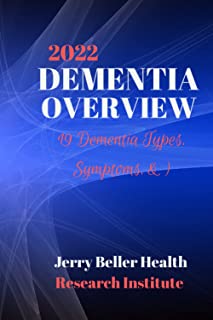Dementia
Dementia is a collective term used to describe various symptoms of cognitive decline, such as forgetfulness. It is a symptom of several underlying diseases and brain disorders. Dementia is not a single disease in itself, but a general term to describe symptoms of impairment in memory, communication, and thinking.
Cluster Number:
Wiki Number: W055
Diagnosis: Dementia
US Patients:
World Patients: 50 Mil
Sex Ratio:
Age Onset: Age 80+- 50%
Brain Area: hippocampus shrinks; temporal and parietal lobes shrink; the brain degenerates; SPECT & PET show vascular cause.
Symptoms: early signs: handling finances, getting lost, repeating things;later-need help eating, dressing, getting out of bed
Progression: Alzheimer’s=80%; vascular, 20%=blood loss to the brain; Lewy bodies=hallucinations; frontotemporal=language problems
Causes: lewy bodies, frontotemporal dementia;people with dementia average five other chronic diseases; 50% persistent pain
Medications: donepezil, antipsychotics; no medications show a preventative effect
Therapies: exercise helps sustain activities of daily living;music; diets with low saturated fat and good carbohydrates; vitamin D
Youtube Video: Living with
Young-Onset Dementia
Youtube Video: Later Stage Dementia: Brad and Jean’s Story
Book from Amazon or Library: 2022 Dementia Overview
Click the book to link or order from Amazon.

